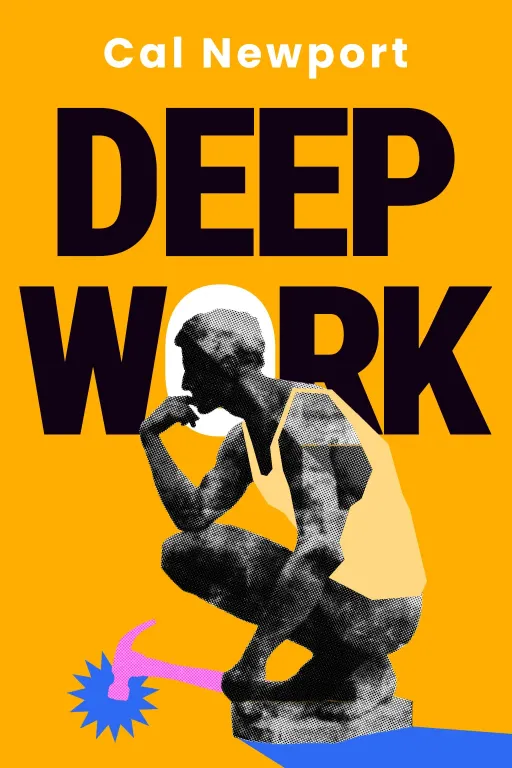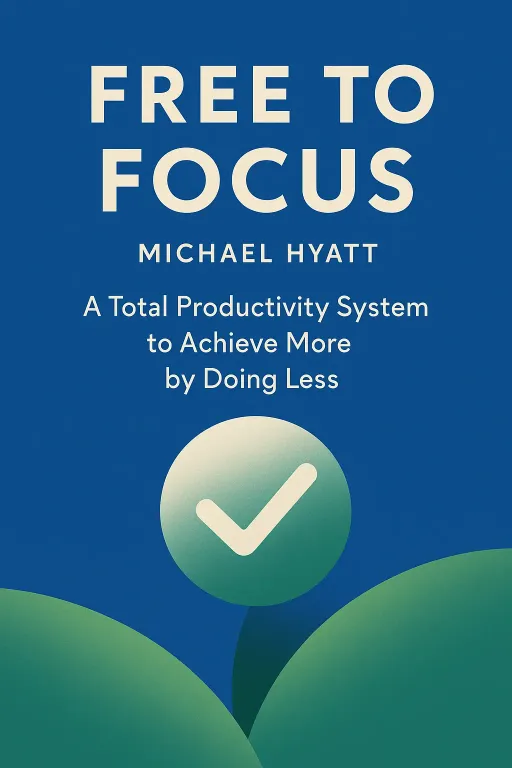
Do It Today
9 minOvercome Procrastination, Improve Productivity, and Achieve More Meaningful Things
Introduction
Narrator: Imagine spending dozens of hours migrating your entire business newsletter to a new email provider, only to wake up one morning and find your account blocked. You're labeled a spammer. Spambots have flooded your signup form with fake addresses, and the system designed to protect people has now locked you out of your own livelihood. Frustration and anger boil over. What do you do? Do you spend the day fighting with customer support, dwelling on the injustice? Or do you channel that energy into something productive? For author Darius Foroux, the answer was clear: he sat down and started writing. This single decision, to act rather than react, is the core philosophy behind his book, Do It Today: Overcome Procrastination, Improve Productivity, and Achieve More Meaningful Things. The book argues that our actions, especially in moments of adversity, are what truly define us, and that the most powerful principle for a productive life is to simply begin.
Procrastination is an Inner War, Not an External Nuisance
Key Insight 1
Narrator: A common misconception is that procrastination is a time management problem caused by external factors like social media or a noisy environment. Foroux argues that the true battle is internal. Procrastination is a form of self-sabotage, an emotional response to tasks we find difficult, boring, or intimidating. It is the voice of "Resistance," a term borrowed from author Steven Pressfield, that actively works to keep us from doing the hard work necessary for growth.
Foroux illustrates this with his own past struggles. In 2013, feeling stuck in his career, he decided to start a freelancing business. He had the skills for web design, copywriting, and marketing, but he consistently avoided the most crucial and uncomfortable tasks: sales and marketing himself. He knew what he had to do to find clients, but the internal resistance was too strong. Instead of facing that discomfort, he found an escape by taking a regular job, effectively procrastinating on his entrepreneurial dream. This wasn't a failure of tools or techniques; it was a failure to win the inner battle against the desire for comfort. Recognizing procrastination as an internal struggle is the first step toward defeating it. It requires building mental and physical toughness to be "war-ready" against our own resistance and to choose action even when it's uncomfortable.
Willpower is a Myth; Build Systems Instead
Key Insight 2
Narrator: Relying on sheer willpower to overcome procrastination is a losing strategy. Willpower is a finite resource that depletes throughout the day, making it an unreliable tool for sustained productivity. Foroux asserts that the key to beating procrastination is not more willpower, but better systems. A well-designed system automates good behavior and makes it harder to fall into unproductive patterns.
One of the most effective systems he recommends is borrowed from management expert Peter Drucker: meticulously tracking your time. Foroux suggests a simple exercise: for two weeks, keep an hourly log of all your activities. This isn't about judging yourself, but about gathering data. At the end of the period, you analyze the log and ask two critical questions. First, "What am I doing that doesn't need to be done at all?" This helps identify and eliminate complete time-wasters. Second, "Which of my activities could be done by someone else or in a better way?" This forces a hard look at recurring, non-productive tasks. By systematically measuring and analyzing where time goes, individuals can stop relying on the fantasy of willpower and instead build a robust, personalized system that fosters effectiveness by design.
Manage Attention, Not Time, by Disconnecting
Key Insight 3
Narrator: In the modern world, the most valuable resource isn't time—it's attention. While we can't create more time, we can control where we direct our focus. Foroux argues that the constant connectivity of smartphones and the internet is fundamentally designed to fracture our attention. The endless notifications and algorithm-driven content feeds create a dopamine-fueled cycle of distraction that makes deep, meaningful work nearly impossible.
Based on research and personal experience, Foroux advocates for a radical shift from being "Always Connected" to "Always Disconnected." He shares his personal experiment of turning off Wi-Fi and mobile data on his phone by default, only connecting intentionally when he needs to perform a specific task. This simple change dramatically reduced his urge to mindlessly check for updates, calmed his mind, and boosted his productivity. This idea is supported by a study from the universities of Würzburg and Nottingham Trent, which found that participants' concentration test scores were a staggering 26% higher when their smartphones were removed from the room entirely compared to when they were on the desk. The lesson is clear: to reclaim focus, one must be ruthless in managing the environment and intentionally disconnect from the digital noise.
The Ultimate Procrastination Cure is Passion
Key Insight 4
Narrator: Productivity hacks and systems are useful, but they are only treating the symptoms if the underlying disease is a lack of passion. Foroux makes a compelling case that the single biggest reason most people procrastinate is that they dislike the work they are doing. When a task feels meaningless or unenjoyable, the internal resistance to doing it is immense, and no amount of time-blocking can fix that fundamental mismatch.
He recalls his first summer job at age 16, working in sales for a telecom company. He hated the work. To avoid making calls, he would spend an inordinate amount of time meticulously logging notes after each conversation, a clever form of procrastination disguised as diligence. He wasn't lazy; he was uninspired. This contrasts sharply with his current work as a writer. Because he is passionate about it, the drive to work is intrinsic. Procrastination, therefore, can be a valuable signal. It can be your mind telling you that you are on the wrong path. Instead of trying to force yourself to be productive at a job you hate, the more effective long-term solution is to find work that aligns with your skills and passions. When you are genuinely engaged in what you do, the need to fight procrastination largely disappears.
Embrace the Power of Compounding by Focusing Sequentially
Key Insight 5
Narrator: Achieving big goals isn't about doing everything at once; it's about the power of compounding—making small, consistent progress in one direction over a long period. Foroux emphasizes that "success is sequential, not simultaneous." Trying to master multiple skills or launch several projects at the same time dilutes focus and energy, leading to mediocre results across the board.
He learned this lesson in high school. While his peers tried to study a little bit of every subject each night, he found he learned much faster by immersing himself in one subject for a few days before moving to the next. This principle of sequential focus is amplified by the effect of compounding. The wealth of Warren Buffett serves as a prime example. Buffett acquired 99% of his net worth after the age of 50. His fortune didn't come from a single brilliant move, but from decades of consistent, focused investment that compounded into astronomical results. The same applies to skills, health, and relationships. By choosing one thing, focusing on it, and applying consistent effort, the results will eventually compound and far exceed what could be achieved by trying to do everything at once.
Conclusion
Narrator: The central, unifying message of Do It Today is that you are what you do. It's a simple but profound idea that shifts the focus from abstract goals, titles, and intentions to concrete, daily actions. The book is not just a collection of productivity tips; it is a blueprint for a life of purpose, built one deliberate action at a time. It teaches that overcoming procrastination isn't about finding a magic bullet, but about building robust systems, managing your attention, and, most importantly, aligning your work with your passion.
Ultimately, the book leaves readers with a powerful and counter-intuitive challenge: live as if you are immortal. While the "life is short" mantra can inspire impulsiveness and short-term thinking, the immortal mindset encourages you to build something that lasts. It pushes you to invest in your health, your knowledge, and your relationships for the long haul. It begs the question: If you knew you had endless time, what kind of life would you start building today?









